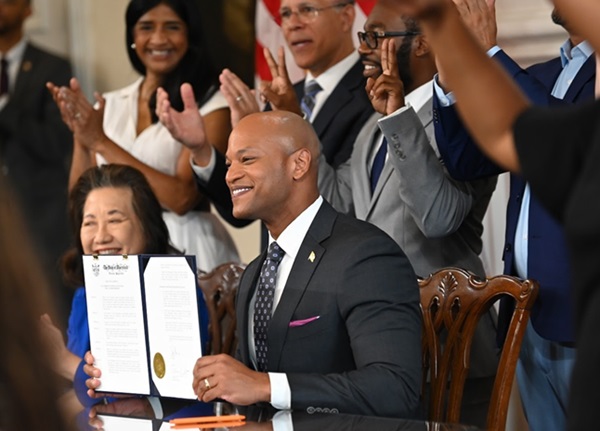ANNAPOLIS, MD—Governor Wes Moore has signed an executive order pardoning 175,000 people with low-level marijuana possession convictions. This is the largest pardon of any state in the U.S. for a misdemeanor cannabis possession charge, and it also includes possession of drug paraphernalia.
The order follows the state’s 2022 legalization of recreational cannabis. Over 150,000 of the people pardoned had simple cannabis possession charges, while more than 18,000 had drug paraphernalia charges. Eligibility criteria for the pardons include convictions for misdemeanor possession of cannabis or misdemeanor use or possession with intent to use drug paraphernalia; convictions for misdemeanor use or possession with intent to use drug paraphernalia were in cases associated with misdemeanor cannabis possession and no other charges were incurred; related disposition of guilty or probation before judgment; and charges occurring prior to January 1, 2023, when possession of personal use amount of cannabis was decriminalized.
“Maryland made history when we legalized cannabis by referendum. But we cannot celebrate the benefits of legalization while forgetting the consequences of criminalization. No Marylander should face barriers to housing, employment, or education based on convictions for conduct that is no longer illegal,” said Gov. Moore. “Today, we take a big step forward toward ensuring equal justice for all. But this won’t be our last effort. We must continue to move in partnership to build a state and society that is more equitable, more just, and leaves no one behind.
The Maryland Judiciary will update the electronic records of those people to show that their convictions have been pardoned. This process should take about two weeks. The Department of Public Safety and Correctional Services will also start a process to show the pardon on the criminal records of each individual. This process should take about ten months.
Last Prisoner Project Director of Strategic Initiatives Jason Ortiz praised the move, saying that it was a bold move by the governor that would help to rectify racial disparities caused by cannabis prohibition. He said that this pardon would be a first step towards addressing the injustices of cannabis incarceration.
This article was written with the assistance of AI and reviewed by a human editor.
Photo via the Maryland Governor’s Office


